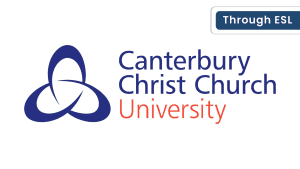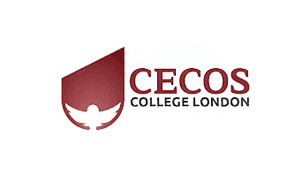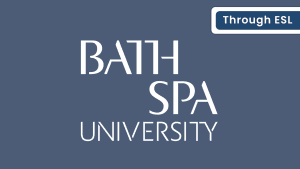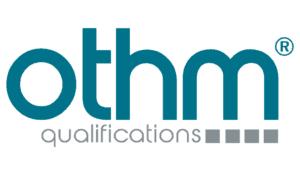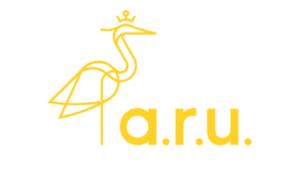BSc (Hons) Public Health with Foundation Year
Intake:
Location:
Duration:
Fees:
This four-year programme is the perfect starting point if you are passionate about health but do not currently have the required A-level subjects or grades for direct entry into a degree. It is also ideal for those returning to education who want to build academic confidence in a supportive environment before embarking on undergraduate study. We believe that motivation and life experience are just as valuable as formal qualifications, and this foundation year is designed to provide you with all the skills and knowledge you need to thrive.
The course moves beyond a simple focus on individual illness, instead asking the big questions: why are some communities healthier than others? How can we prevent disease before it starts? And how do we design effective campaigns that truly change behaviour? You will study the spread of disease (epidemiology), the psychology of health choices, and the social and political factors that shape our wellbeing. Learning is highly practical, based on active and authentic assessments that mirror real-world tasks. You will work with public health data, analyse case studies from local communities, and learn how to develop and evaluate your own health promotion projects, preparing you for the realities of the modern workplace.
Graduates are highly sought after in a wide range of rewarding roles. You could become a Health Promotion Specialist, a Public Health Practitioner within a local council, a Data Analyst for an NHS trust, or a Policy Advisor for a national charity. Many of our students also use this degree as a springboard to further study, such as a Master’s in Public Health (MPH), Environmental Health, or Global Health, allowing for even greater specialisation. In a world increasingly aware of public health’s importance, this course equips you with the relevant, evidence-based expertise that modern society demands.
Foundation Year: Building Your Scientific and Academic Foundations
This initial year provides a comprehensive grounding in the academic skills and scientific knowledge required to succeed on a health-related degree.
-
Academic and Professional Skills: Learn the fundamentals of university-level study, including how to research effectively, construct a strong academic argument, reference your work, and present your findings with clarity.
-
Foundations of Human Biology: Gain an essential understanding of the human body, exploring the major organ systems and how they function in both health and disease.
-
Introduction to Health and Social Care: Discover the structure of the UK’s health and social care systems, exploring the roles of different organisations and professionals in delivering care.
-
Health and Wellbeing: Explore the core concepts of health and wellbeing from different perspectives, looking at the key factors that influence an individual’s physical and mental health.
-
Research and Evidence-Based Practice: Develop foundational skills in understanding and critiquing research, a vital first step towards making evidence-based decisions in your future career.
-
Integrated Project for Health: Apply your learning from across the year to a guided project, allowing you to investigate a health topic of personal interest in depth.
Year 1: Core Principles of Public Health
In your first year of the main degree, you will build the essential knowledge that underpins all public health practice.
-
Principles of Public Health: Establish a strong understanding of the history, ethics, and core principles of public health, from disease prevention to health promotion.
-
Sociological Perspectives on Health: Analyse how social factors such as class, income, and housing have a profound impact on health outcomes and create health inequalities.
-
Epidemiology and Statistics for Health: Learn to be a ‘health detective’ by studying the patterns and causes of disease in populations, using real data to track trends and identify risks.
-
Health Psychology and Behaviour Change: Investigate the psychological reasons behind our health-related choices and learn the theories that guide effective health campaigns.
-
Anatomy and Physiology for Health: Build on your foundation knowledge with a more detailed study of the human body and how its systems respond to health challenges and interventions.
Year 2: Applying Theory and Specialising Your Focus
You will deepen your practical skills and begin to tailor the course to your own career ambitions through optional modules.
Core Modules:
-
Evidence-Based Public Health: Learn the practical skills of finding, appraising, and applying the best available research evidence to solve real-world public health problems.
-
Promoting Health: Move from theory to practice by designing, planning, and evaluating health promotion initiatives aimed at improving community health and wellbeing.
Optional Modules (Choose two):
-
Substance Use and Misuse: Examine the social, psychological, and physiological aspects of substance misuse and explore strategies for prevention, treatment, and harm reduction.
-
Mental Health in Contemporary Society: Explore mental health from a public health perspective, analysing community-based approaches to promoting wellbeing and challenging stigma.
-
Global Health Issues: Broaden your perspective to analyse major health challenges on a global scale, such as infectious diseases, maternal mortality, and the impact of climate change.
-
Nutrition for Health: Investigate the crucial role of diet in preventing chronic diseases and promoting health across the lifespan, examining current nutritional guidelines and debates.
Year 3: Independent Research and Professional Leadership
Your final year centres on becoming an independent practitioner and researcher, ready to take a leading role in the field.
Core Modules:
-
Public Health Dissertation: Conduct an in-depth, independent research project on a public health topic you are passionate about, guided by a dedicated academic supervisor. This is your chance to become an expert and contribute new knowledge to the field.
-
Leadership and Partnership in Public Health: Develop the strategic and collaborative skills needed to lead projects and work effectively with diverse partners—from local community groups to government agencies—to achieve public health goals.
Optional Modules (Choose two):
-
Sexual Health Promotion: Focus on a key area of public health by exploring strategies and policies for promoting positive sexual health and preventing sexually transmitted infections.
-
Health in the Workplace: Analyse the challenges of occupational health, learning how to design and implement workplace wellness programmes that reduce stress and improve employee health.
-
Public Health Nutrition Practice: Apply nutritional science to real-world community settings, learning how to tackle issues like food poverty and obesity through practical interventions.
-
Emergency Planning and Response: Examine how public health systems prepare for and respond to major incidents and emergencies, from infectious disease outbreaks to natural disasters and terrorist threats.
Funding Your Studies with Student Finance
You may be eligible to receive financial support from the UK Government to help cover your tuition fees and living expenses while studying.
✔ Tuition Fee Loan – Covers 100% of your tuition fees, paid directly to the university, so you can focus on your studies without financial stress.
✔ Maintenance Loan – Helps with living costs, including rent, food, and travel, making student life more manageable.
At Active Care Education, we simplify the process for you! Our expert team will guide you step-by-step, ensuring you secure the funding you’re entitled to. If you’re a British Citizen, Refugee, have Indefinite Leave to Remain, or hold EU Pre-Settlement Status (2.5 – 3 years), you could qualify for this government-backed funding.
Why wait? Start your journey towards a degree without upfront costs! Contact Active Care Education today for free assistance.
FAQ
OUR PARTNERS
Showcasing our partnerships with leading universities to help you achieve your academic goals.

